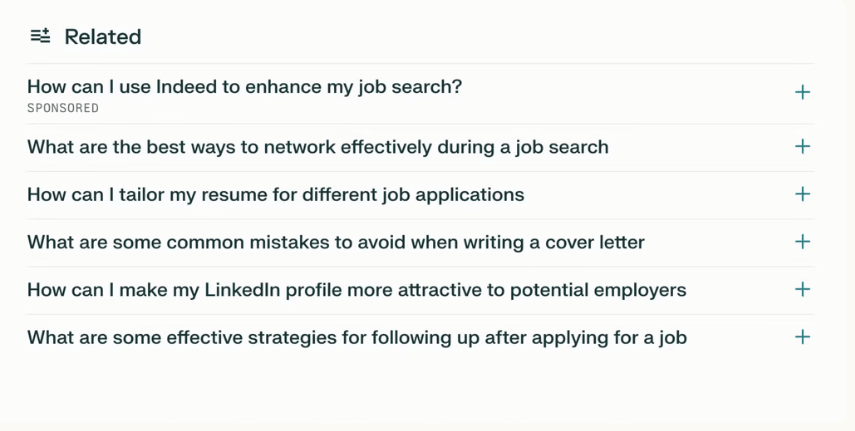Perplexity AI launches ad program with sponsored follow-up questions

Perplexity, the AI-powered answer engine, is rolling out its advertising program in the United States this week.
The company has signed on several major advertising partners, including Indeed, Whole Foods, Universal McCann, and PMG. These sponsored questions appear naturally in the conversation flow, such as "How can I use Indeed to enhance my job search?"

This approach marks a departure from traditional search advertising, where companies pay for clicks rather than visibility—suggesting Perplexity doesn't expect to drive significant website traffic.
Perplexity emphasizes that advertisers cannot influence the AI's answers, and the company does not share personal user data with advertising partners.
Questions remain about business model and accuracy
The company plans to share some advertising revenue with selected publishers whose content feeds into Perplexity's AI responses. This comes as the first lawsuits over unauthorized content use make their way through the courts.
When asked about accuracy issues, Perplexity has been notably quiet. The platform occasionally produces incorrect information that looks legitimate, with mistakes typically only noticeable to experts in the field. The system also sometimes misattributes its sources.
The company has consistently avoided answering basic questions about whether it monitors these errors or intends to release real-world accuracy data beyond artificial benchmarks.
Despite this underlying hallucination problem that affects all LLM search providers, uncertainties about legal issues, profitability, and emerging competitors like ChatGPT's search integration, Perplexity is growing is reportedly close to raising a new round of funding.
AI News Without the Hype – Curated by Humans
As a THE DECODER subscriber, you get ad-free reading, our weekly AI newsletter, the exclusive "AI Radar" Frontier Report 6× per year, access to comments, and our complete archive.
Subscribe nowAI news without the hype
Curated by humans.
- Over 20 percent launch discount.
- Read without distractions – no Google ads.
- Access to comments and community discussions.
- Weekly AI newsletter.
- 6 times a year: “AI Radar” – deep dives on key AI topics.
- Up to 25 % off on KI Pro online events.
- Access to our full ten-year archive.
- Get the latest AI news from The Decoder.